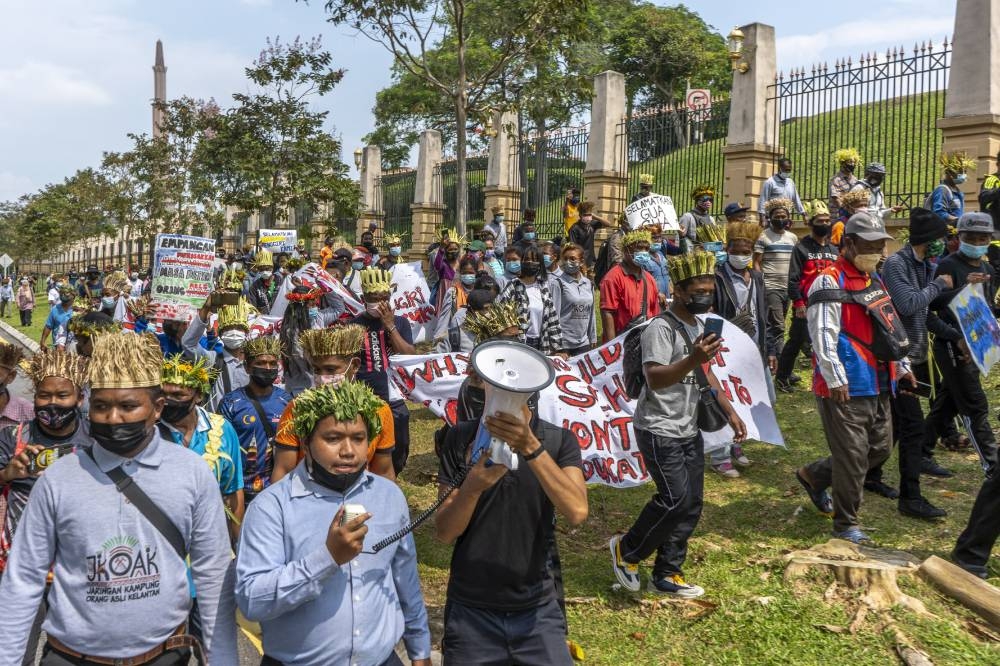KUALA LUMPUR, July 15 — Jaringan Kampung Orang Asli Kelantan (JKOAK) has said that they plan to take up their case to court after the government decided to carry on with the Sungai Nenggiri Dam project.
“We regret the government’s decision to build the Sungai Nenggiri Dam because it will affect historical areas, sacred places and our ancestral tombs.
“The minister’s claim that 80 per cent of the villagers support this project is untrue and wrong because we have managed to collect more than 3,000 signatures that protest against this project.
“The timeline has not been finalised yet because we need to do some discussion first,” said Mustafa when asked by Malay Mail about the court date.
JKOAK had presented their Memorandum of Understanding (MoU) to the Prime Minister’s Office in Putrajaya on June 7 to express their concerns about the construction of the 300 megawatts (MW) installation that will force them to relocate from their homeland.

In the MoU, JKOAK claimed that the project will submerge up to 5,834 hectares of forest that are the cultural lands of Orang Asli in Gua Musang, Kelantan and the project will also erase the historical trace of Orang Asli Temiar in West Malaysia.
The group then suggested the government replace the original plan by building several smaller dams that are also capable of solving the flooding problem and water supply issues faced by Kelantan.
The Minister of Energy and Natural Resources Datuk Seri Takiyuddin Hassan told reporters on June 14 that the project has passed several types of research including the Environmental Impact Assessment (EIA), Heritage Impact Assessment (HIA), and Social Impact Assessment (SIA).
“There is no reason for the government to terminate the construction of the Nenggiri hydro-electric dam project,” he added.
Minister of Rural Development Datuk Seri Mahdzir Khalid had previously told Malay Mail that there are “outside elements” influencing the MoU submitted by JKOAK as they are asking for extra compensation.
“From the information that we have received from the Kelantan state government and the Ministry of Energy and Natural Resources, the head of villagers affected by the project are satisfied with what they received for compensation.
“I haven’t read the memorandum because it’s sent to the Prime Minister’s Office directly, but based on the conversation we had with the batin-batin (village heads) about the allowance, land, and house allocation they were given, we think they are satisfied with it,” Datuk Seri Takiyuddin had said.
According to the Ministry of Rural Development and Department of Orang Asli Development (JAKAO), the compensation offered to villagers affected by the hydroelectric dam project include a house site of 0.2 hectares and a 750 square foot house, an orchard lane of 0.2 hectare, a small rubber estate of 2.2 hectares and public facilities such as schools, teacher placement, kindergartens, treatment halls, surau and shop lots.
Payments for relocation involve cash assistance of RM1,383 for each household for five years as long as their rubber estate has not produced any yield.
The RM5 billion Nenggiri Hydroelectric Dam project is expected to start generating electricity in mid-2027.
The project is aimed at increasing the capacity of renewable energy in West Malaysia, solving the long-standing problems of flood and clean water supply in Kelantan, and creating eco-tourism opportunities.






















